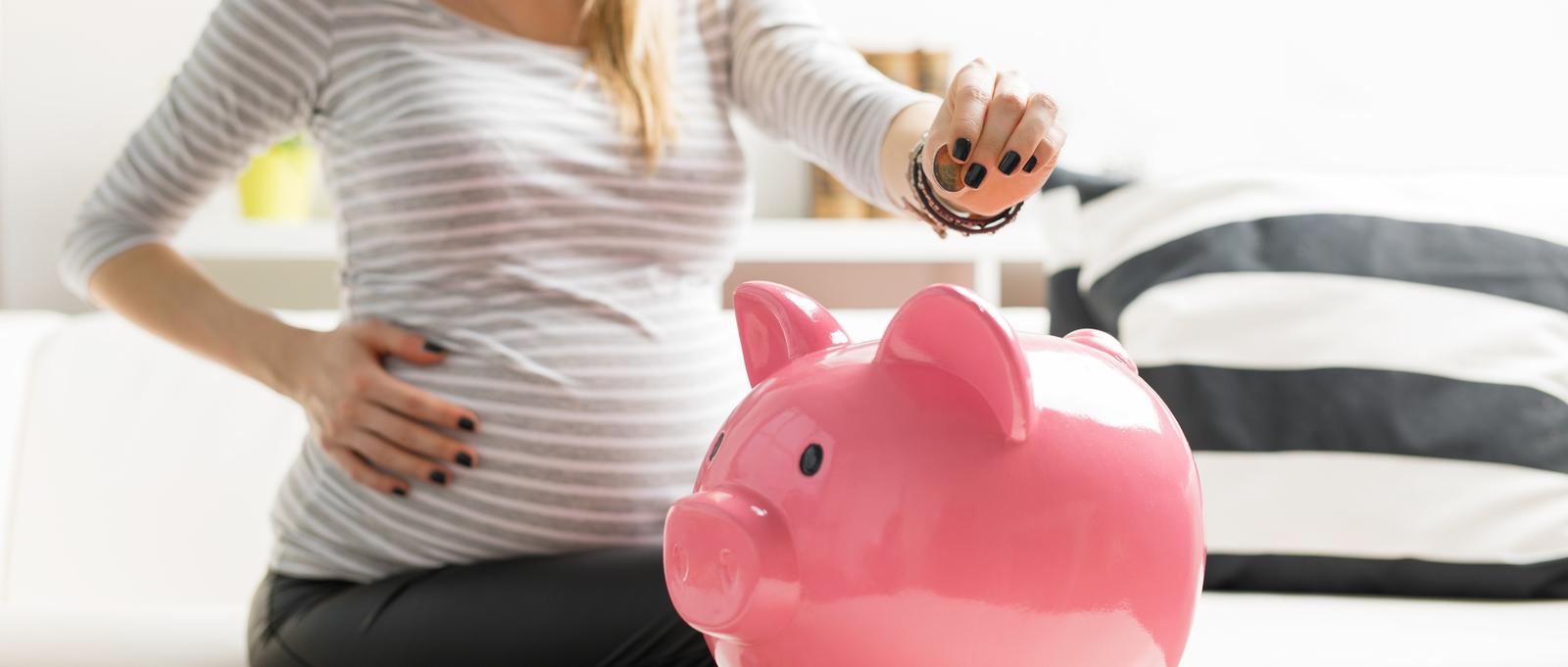
Putting together a budget for your baby
Peer reviewed by Dr Sarah Jarvis MBE, FRCGPLast updated by Danny ChadburnLast updated 26 Sept 2017
- DownloadDownload
- Share
Having a baby is one of the most exciting – and expensive things – you will ever do. Figures from The Money Advice Service show you’ll spend £4,000 on a child in their first year and by the time they’re 18, that could be a staggering £250,000.
In this article:
Finance expert Holly Andrews says, ‘Deciding whether you can afford to have a baby is a big decision, so getting a general idea of the costs involved can be useful.’
Here are some budgeting tips to help you plan for your baby.
Continue reading below
Take a good look at your finances
It might feel too soon in the first stages of pregnancy, ‘but it’s never too early to work out a budget, for pregnancy and beyond,’ says blogger Amanda Fulton, aka Ginger Mum.
Use a budget planner to help you get a handle on your incomings and outgoings. If your income is likely to change – if you stop work, for example – cutting back on non-essential expenses will save money. While staying physically active during pregnancy is important, the expense of a gym membership may be unnecessary.
Use a baby costs calculator
Before you go crazy kitting out the nursery, use a baby costs calculator to work out what your baby really needs and how to cover those costs.
Financial expert Miss Lolly (Lisa Conway-Hughes) says, ‘There's so much pressure to buy the latest equipment and gadgets but the stress of being in debt isn't worth it. Parents can only do what they can afford to do.’
Continue reading below
What benefits can you claim?
Check to see if you’re entitled to any benefits, including maternity pay – there are plenty available when you’re pregnant or have a baby, including maternity benefits and benefits you can claim if you’re unemployed or on a low income.
Andrews says, ‘You could also be entitled to a Sure Start maternity grant, a one-off amount of £500 when your first child is born to help with the costs of purchasing baby items.’
What are the essentials?
‘You will need a pram, car seat, cot, baby monitor, nappies, wipes, bottles, bedding and clothes,’ says Andrews. You can delay buying some items, like a high chair or stair gates, until your child actually needs them.
The range of baby products available can be overwhelming when you go shopping, especially if it’s your first child, but many of them are pointless. Talk to other parents about what they actually found useful.
Continue reading below
Don’t be tempted to stockpile
Resist the urge to buy everything as soon as you discover you’re pregnant. ‘Remember, you’ll be given lots of gifts when the baby is born,’ says Fulton. Stockpiling items, like nappies, can also be a waste of money if you discover your baby quickly grows out of the size 1’s.
It doesn’t have to be brand new
There are lots of ways to save money on the things you need:
Borrow items you won’t use that often, such as a travel cot.
Shop for second-hand items on eBay, Facebook mother and baby groups, or at NCT ‘nearly new’ sales.
Re-sell things you no longer need
Once your baby no longer needs an item, such as a steam sterilizer or a cot, you can get more value out of it by reselling it. Don’t forget to keep hold of any boxes and instructions to help maximise the return.
If you’re given new baby clothes, don’t take the tags off straight away. ‘If your baby never got around to wearing them, they can be sold or even re-gifted,’ says Fulton.
When your baby is born
Sort out some life cover. Miss Lolly says, ‘I recommend that clients get life cover for debts such as their mortgage and then extra for their family cover.’ This will help protect your home and family if anything happens to you.
Start a pension for your newborn too – it may sound ridiculously early, but they will thank you for it when they’re older. Miss Lolly says, ‘Pay in £240 a month and the government will top up the pot to £300. The benefits of compound interest mean your child could be millionaire when it’s time to retire on their pension!’
Article history
The information on this page is peer reviewed by qualified clinicians.
26 Sept 2017 | Latest version

Ask, share, connect.
Browse discussions, ask questions, and share experiences across hundreds of health topics.

Feeling unwell?
Assess your symptoms online for free